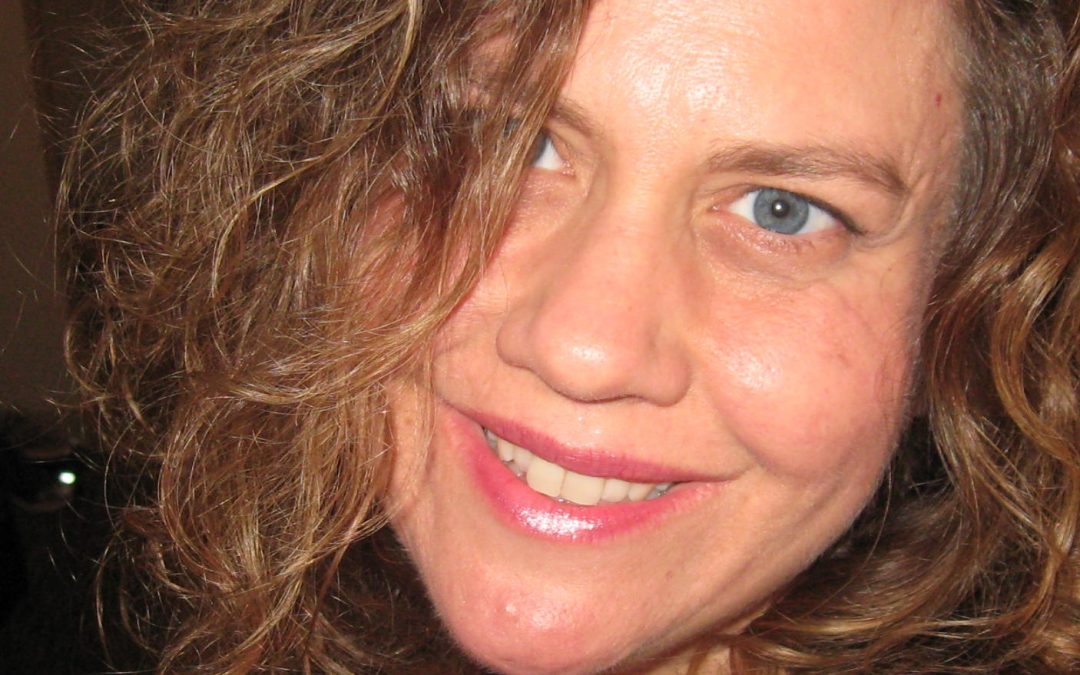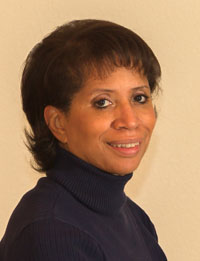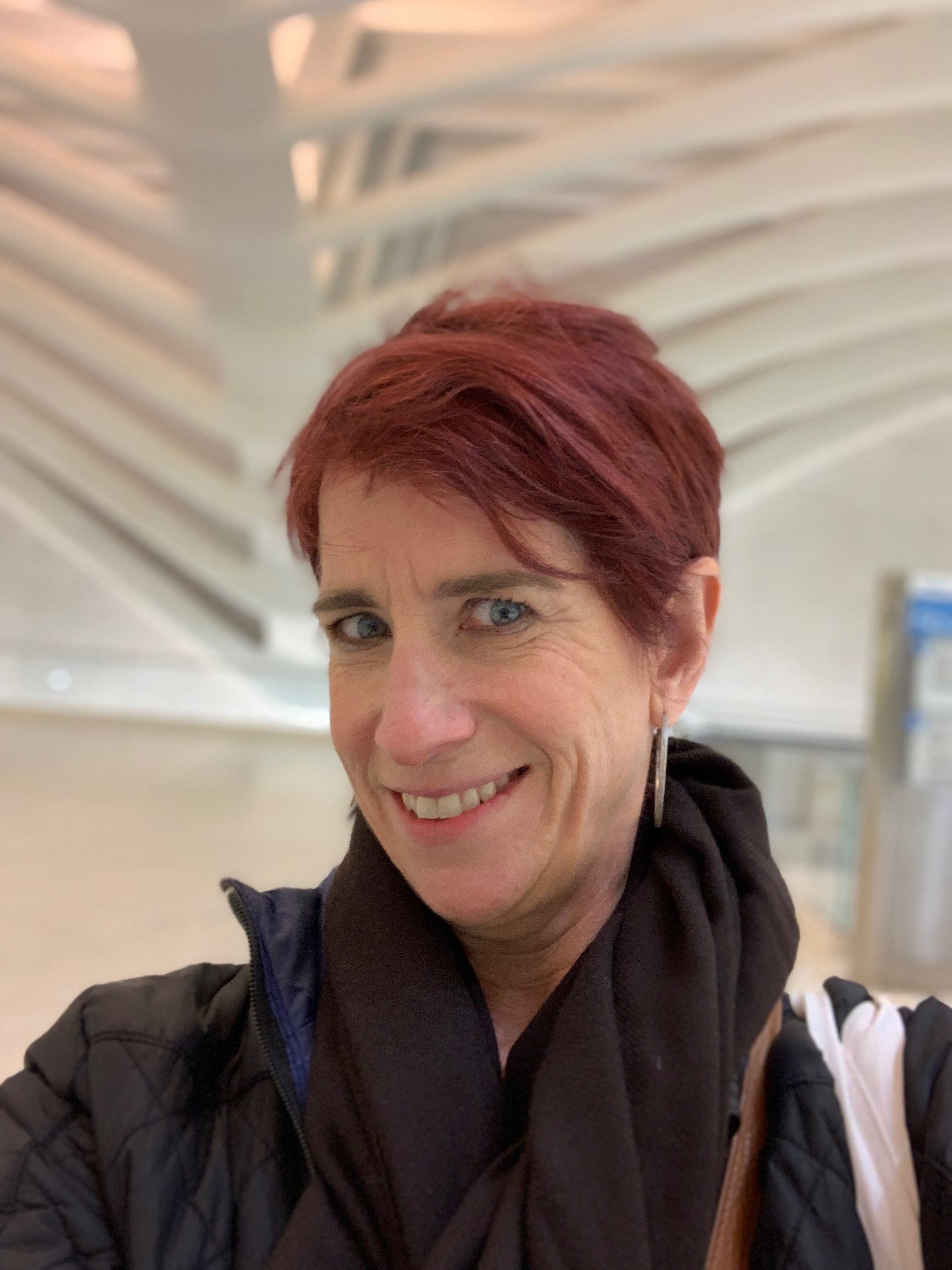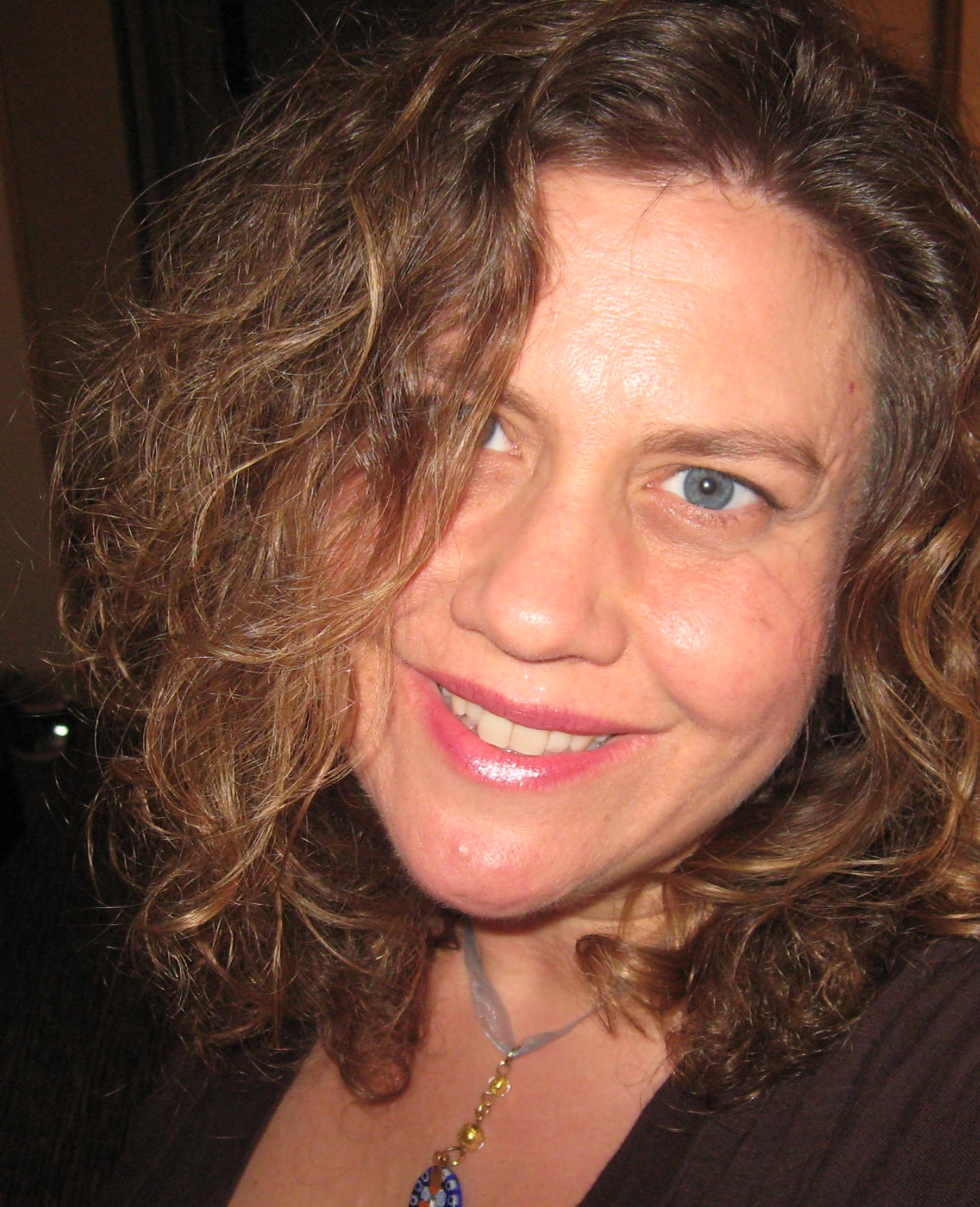
Author Wendy Tyson
In life and work, lawyer and author Wendy Tyson likes to allow things to grow organically. A former therapist to troubled kids, Tyson has leaned on her very diverse professional experiences to help craft the highly successful Allison Campbell mystery series. This year, she used an experience most writers live in fear of as inspiration to venture into the “cozy” mystery genre with “A Muddied Murder,” the first in her new Greenhouse Mystery series. She was kind enough recently to take some time from her work and the organic micro-garden she and her husband cultivate at their home near Philadelphia to share some thoughts with The Open Mic about her work and how we perceive flawed characters.
Open Mic: Let’s start with the Allison Campbell series. Did you always mean for it to be a series or did it develop a little bit more organically than that?
Tyson: I think it developed a little bit more organically than that. I love series’. I read them myself, and so once I wrote that first book I knew I wanted it to be a series. But I didn’t set out necessarily to write a series.
Open Mic: Was it something from your agent or publisher or was it more your idea?
Tyson: It was more of my idea. “Killer Image” was not my first novel. I wrote another novel that got me an agent but not a publishing contract. My agent at the time said to write something you love. I’ve always loved mysteries and thrillers so I decided to write Killer Image. I parted ways with that agent and I actually didn’t end up selling Killer Image until after I wrote yet another novel, “The Seduction of Miriam Cross.” And I fell in love with the characters in Killer Image. It was a storyline that was very dear to me for a number of reasons. When I wrote “The Seduction of Miriam Cross” I had a new agent, and I said, “Hey, you know I have this other novel if you’d like to take a look at it?” She read it and loved it as well, and actually sold it first. So she said to me, “have you thought about a series?” I said, “Oh, not only have I thought about making this a series, I’ve outlined the next couple of books in case that ever came to fruition.”
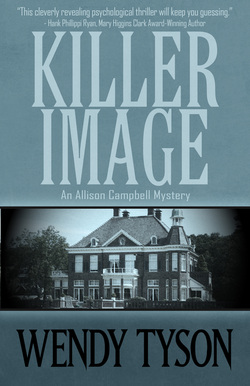
Allison Campbell, Book One
Open Mic: I’m very interested in character development. You’re a lawyer, you’ve been a therapist, and now you and your husband have an organic micro-farm. It’s a very eclectic collection of backgrounds and experiences. How have those experiences impacted the character development in your books?
Tyson: I’ll start with the Alison Campbell character and the concept behind it throughout the juxtaposition of two careers. I was a therapist and I worked with kids in a residential program. A number of the kids had come from disadvantaged backgrounds or been in trouble with the law. I saw in many ways the worst that humanity has to offer in terms of how some of these kids were treated. I left that job and went to law school in the Main Line in Philadelphia. If you’re not familiar with it, the Philadelphia Main Line is this very privileged community. I remember sitting in law school thinking about the contrast between my old job – where although I had seen so many negative things, these kids had a resilience that astounded me – and this place of privilege I was in now. I thought a lot about image and what’s underneath it, and that’s really where that series grew from.
Open Mic: Women are often still portrayed across all media as victims needing to be rescued. Or, conversely, as sexless, duplicitous killers. What is your perspective on how women are portrayed in the media and writing strong female characters?
Tyson: That’s a great question. I definitely think we’ve come a long way at least in recognizing some of these challenges and opportunities to change how women are portrayed in media and in books. So much of it may come down to how you define strong. I was on a panel a few years ago and the panel debated why we even talk about a strong female character. Why isn’t it just a strong character? But I do think with the history of how women are portrayed in literature and in media, it’s appropriate to have that conversation. For me, at its core the question is, what is strength? I personally define strength as not necessarily just a physical thing but as the ability to overcome obstacles and challenges, whether they are the emotional, mental, physical or situational. Characters who are able to portray both that kind of strength and its flipside, which is vulnerability, intrigue me regardless of gender. So I’m careful when I craft female characters to have them be multi-dimensional. As you said, every so often strong woman in literature and in crime fiction are one dimensional. Their physical aspects dominate, or they’re almost cutthroat, and I choose not to go down that path in my novels. Those are character traits a woman could very well have but I do prefer to take a broader look at what strength really is.
Open Mic: Along those lines, over the last few years we’ve seen books like Gone Girl and the Girl on the Train really making waves in the mystery and suspense genres. Are those kinds of stories interesting to you? They’ve certainly drawn a lot of air out of the room.
Tyson: They have. The unreliable narrator is a literary technique that’s been around for a long time and I think you have that in both of those books. I read “Gone Girl” the other day and I couldn’t put it down. I also read “The Girl on the Train” and I liked the fact that the character was flawed, that both characters were very flawed. So I enjoy the suspense element of those books and the fact that the narrator isn’t necessarily what they seem at the outset. I imagine that we will see more of those. There’s lots of thrilling aspects of the bad girl, right?
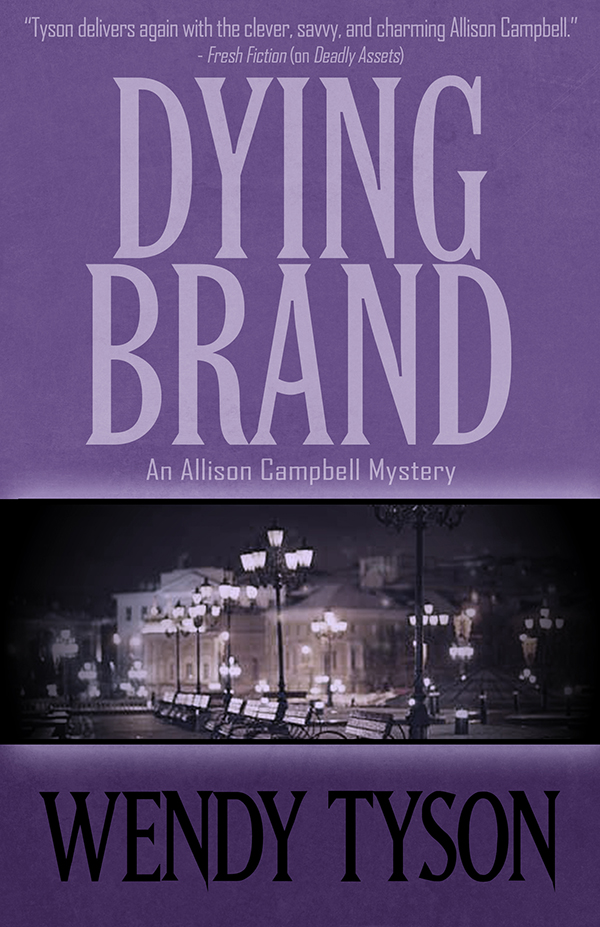
The latest Allison Campbell mystery
Open Mic: Do you think you have to write a flawed character differently when that character is a woman rather than a man? Are the flaws different? Or do you think women are accepted having the same kinds of flaws that male characters often have.
Tyson: That’s a great question, and a bit of a loaded one. I think from a character standpoint, that gap is closing. I mean, sex is one obvious area because historically we’ve been more accepting of male characters who are more sexually active or promiscuous, if you consider it a flaw. I think that certainly has changed over time. So yeah, I do think we are more forgiving of certain things with men. But I also definitely think, at least in the crime genre, that gap has closed significantly over time. And if you look at some of the more popular crime novels out today, we’ve seen women who are strong but who are certainly flawed in a way that maybe would not have been acceptable at some previous time. In the early renditions of the first Allison Campbell book, she was a little bit more cutthroat, a little bit more business oriented, a little less soft. And I would get feedback from agents that she was perhaps not likable from that perspective. But how are those flaws? I would say they are character traits but not necessarily flaws, when you think about what actually constitutes a character flaw.
Open Mic: That’s a good point. What do we perceive to be flaws and what we do perceive to be assets? I used to cover sports many years ago, and at one point I realized that the thing that so often makes an athlete great in their sport is a character flaw in the rest of their life. In sports we admire that hyper-competitiveness and mindless self-absorption because those are the things that make a Michael Jordan or anybody else as great as they are. But it’s often a drag to be around that person because it’s all encompassing. They can’t turn it off.
Tyson: Yes, what is a character flaw versus simply a character trait? Like you said, often times a flaw is also the character’s greatest asset. There are two sides to a coin, and I think most great leaders are narcissistic or have some element of narcissism and ambition. So where is that line for a woman versus a man, right? And when you’re creating a character, you’re thinking about that. Because although your character doesn’t necessarily have to be likable, I do think readers to some extent have to either root for them or to be intrigued enough by them, such as with Gone Girl, to stay with them.
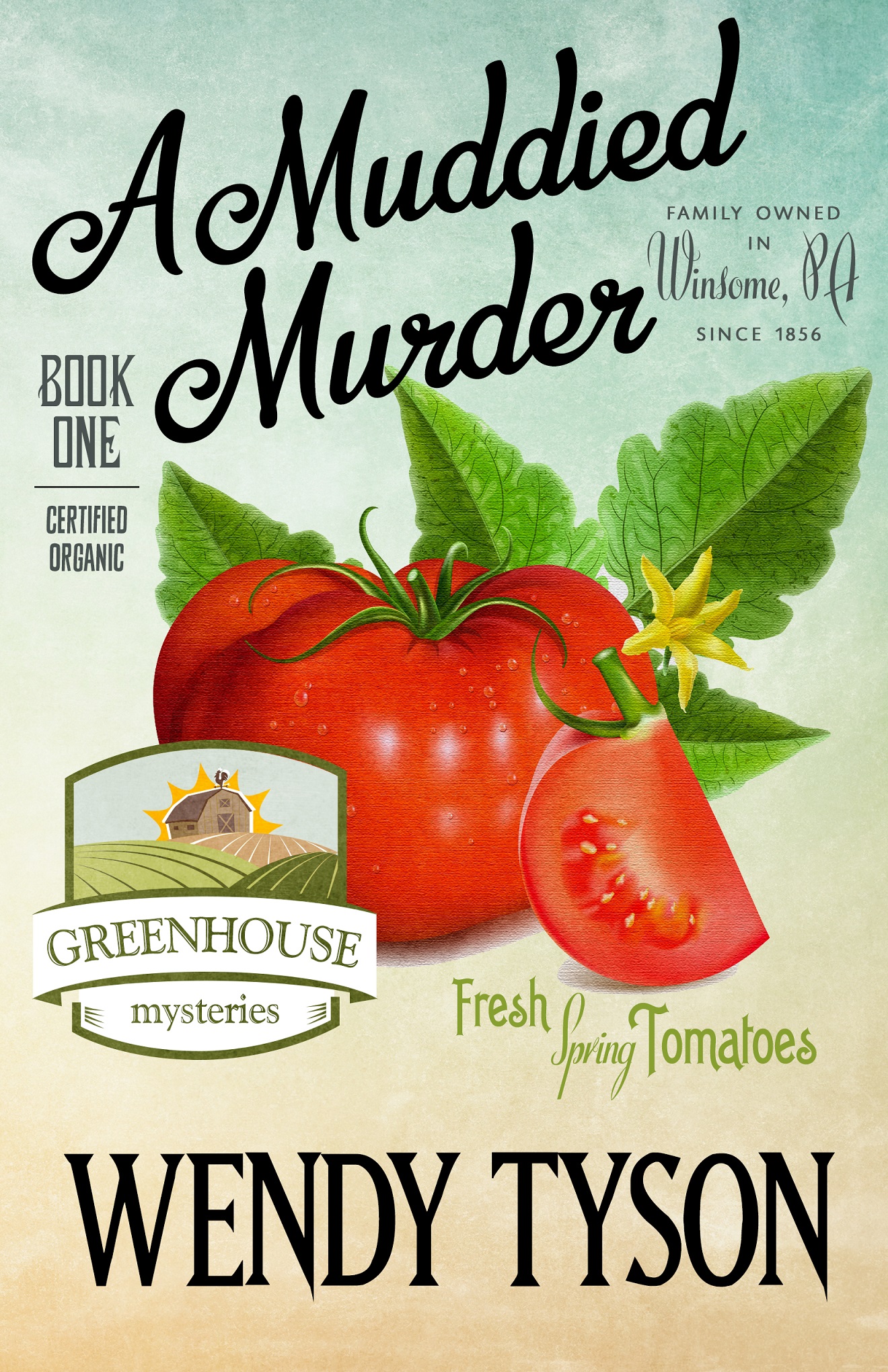
Getting cozy
Open Mic: Let me switch a little. I admit that when I first heard the term “cozy mystery” I did not know what that meant. So of course now I’ve learned a little bit about it. But tell me what inspired you to write a cozy mystery and how that really differs for you writing a more traditional thriller or mystery.
Tyson: I’ll say again that I love crime fiction and all of its sub-genres. But this one was actually inspired by a failed book signing. I went down to this wonderful little bookshop in North Carolina and not one person showed up, which gave me the opportunity to really get to know the book sellers. It was lovely to see firsthand a small town in action. You know, kids were coming in after school and she was helping them pick out books. Just seeing that kind of the interaction between the folks who live in town and the shop owners and that sense of community, it gave me a real feeling for what book readers enjoy about smaller town mysteries. I had thought before about writing cozies but it came to me during that book signing: to set a story in a small town, with the charms of a small town but to still maintain that sense of suspense of a more complex mystery and perhaps even one of our passions, organic farming. Also, we’re all inundated with tragedy and with horrid events, and it struck me that people really read to have a break from that. And maybe it’s not necessarily a bad thing to have that sort of break for a little while. So all that came together for me with the Greenhouse Series and I had a lot of fun. I will also say, that for my publisher, Henery Press, cozy mysteries are their sweet spot and they do very well with them.
Open Mic: That’s great. I’ve talked to several writers – some of whom have sold lots of books – that have had that book signing experience. As somebody who has never been asked to sign anything other than a speeding ticket, I have to live vicariously through your experiences. What is that like to show up and go “ah damn, there’s nobody here?”
TYSON: Well in the beginning it was horrible. That first time you don’t have anyone show up, it can be really rough. But I think one of the things that has helped me a lot is that almost three years into this process, I’ve let go of expectations, I’ve just let them go. Signings are about connections. They’re about meeting readers. They’re about networking to some extent, and if no one buys the book well so be it. Ever since I changed and started going to these events with the idea of meeting people as opposed to selling books, I’ve had a much better experience. At least psychologically I’ve had a much better experience
Open Mic: I ask everybody this question. We know the industry has changed a lot over the last couple of decades and its changing still. What’s your perspective on the industry now, particularly for new writers?
TYSON: I would say – and again, I’ve only been published for a few years myself, but I’ve been writing for much longer than that – the industry has changed a great deal. I think it’s a great time to be a writer. That said, there’s a lot of writers out there and a lot of books and I think it’s a little harder to find your readers. And regardless of their publisher writers are expected for the most part, to be promoting their own work, which in it of itself can be a job. So I think every writer should go in this with their eyes open in terms of the demands of the field. But if you love the craft, then I think it’s a great time to get into it. There are definitely a lot of challenges, but there always have been, right? A great book is a great book and readers still want great books. So I think staying focused on the craft and writing the best books that you can is still the way to tackle this.
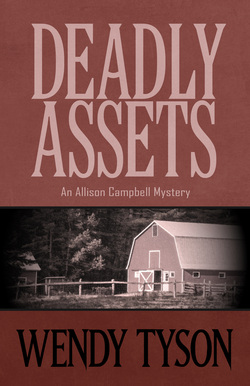
Allison Campbell, Book Two
Open Mic: Another question I like to ask everyone. What are the things you have to have when you write? Good cognac? Coffee? Music? Silence? What works for you when you need to sit down and seriously put out some words?
Tyson: I have three kids, I work full time, and I have a long commute. So I will say I can write anywhere, anyhow, anytime. I don’t really need anything other than a notebook, a pen, or a computer.
Open Mic: Great. And your next book is in the works?
Tyson: I actually have at least two coming out in 2017. “Bitter Harvest,” the second book in the Greenhouse Series is coming out in March of 2017, is being finished right now. And then I have a the fourth book in the Alison series, “Fatal Façade,” which takes place in the Italian Dolomites, coming out next year as well.
You can learn more about Wendy on her website or follow her on Facebook and Twitter.

